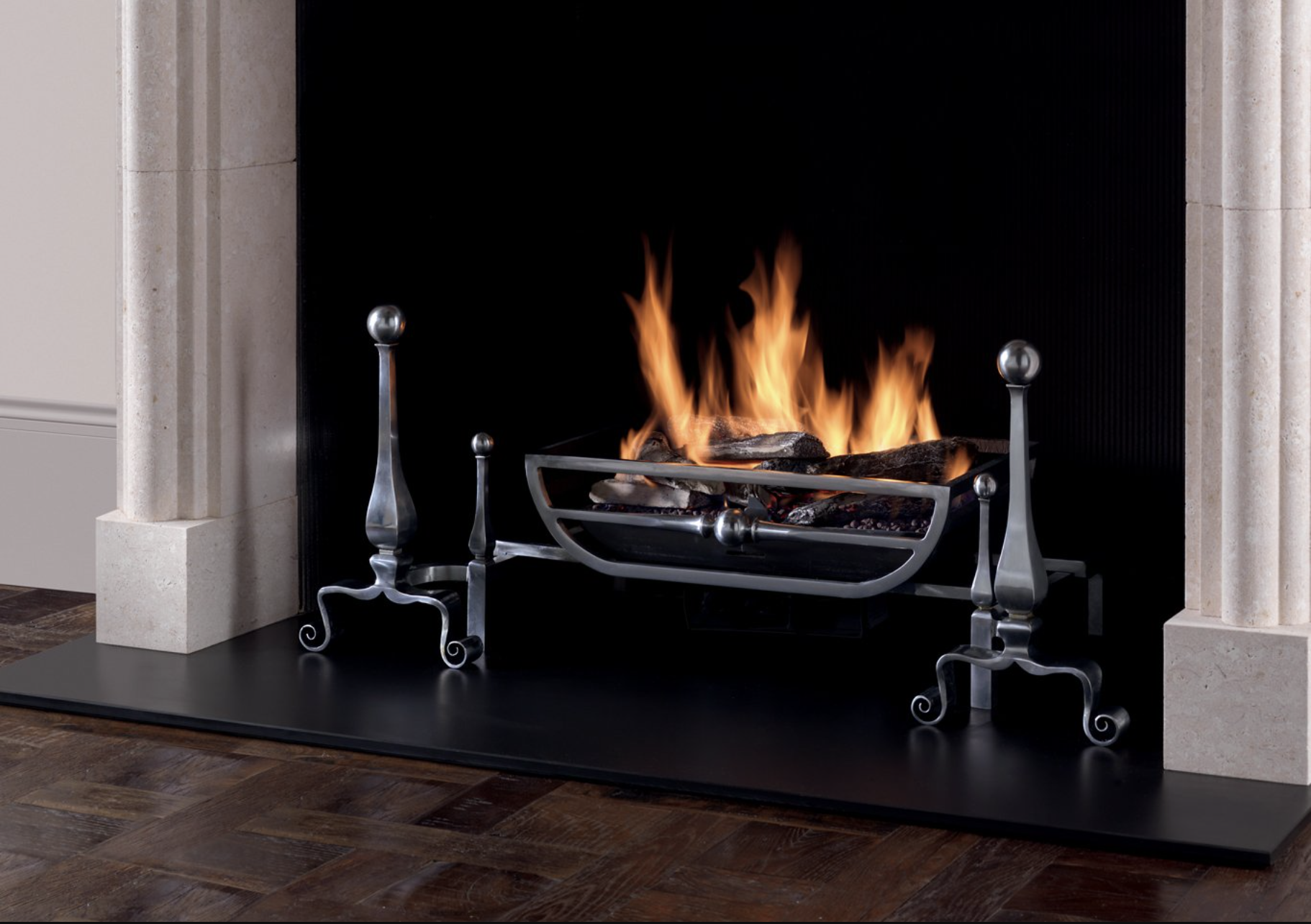

INSTALLATION ADVICE
While many stages of the surround and decorative hearth installation are suitable for someone experienced in general building practices, others like the installation of appliances for solid fuel, flue lining, gas work and the sweeping and testing of flues must be carried out by a suitably qualified professional.
All Cast Iron and Steel Products are supplied with a protective oil-based coating on the polished surfaces. During the installation process this can sometimes be removed so it is very important that a spray-type protective coat of oil (for example WD-40) is applied after installation and before the product is used. Apply using a clean, dry, soft cloth and avoid contact with surrounding materials.
Under no circumstances should water, a water based cleaner, or polish be used to clean cast iron and steel products as this will lead to the appearance of rust. Always ensure that the room in which the product is being installed is thoroughly dry. For example recently plastered or painted walls will cause high levels of moisture in the atmosphere and, as a result, rust is likely to occur.
BURNING A SOLID FUEL FIRE
A new cast iron fireplace which is to be used with solid fuel must be correctly installed and tempered before regular use; this is done by burning a minimum of six small fires consecutively. Each fire must consist of no more than 3 kgs of fuel. This process will ensure that the heat damage through consistent use is kept to a minimum but acceptable level when burning solid fuels. It is your responsibility to burn smoke free fuels if you live in a smoke free zone. Coal or wood must not be burnt in Smoke Control Areas. There are some very high temperature burning fuels which can cause damage to any fireplace. We DO NOT recommend the use of peat briquettes. Please refer to the Solid Fuel Association (www.solidfuel.co.uk) for recommendations and always use an approved coal merchant as your supplier. No responsibility can be accepted if high temperature fuels have been used or if there is excessive draft. If in doubt we recommend the use of a clay fire back to protect the cast iron. The grate is a consumable part of your fire and may need to be replaced from time to time; this will depend on the frequency and burning temperature of your fire.
PROTECTION AND MAINTENANCE
Water vapour is a product of combustion, as such some degree of discolouration is inevitable with the burning of both gas and solid fuel fires. The level of moisture is increased when burning solid fuel. The areas of the basket or register grate near the burning area are subject to thermal discolouration and is normal and unavoidable with use. When using ceramic coals and logs with gas effect fires, ensure these do not touch any of the polished surfaces as this will help to minimise the possibility of discolouration. The level of discolouration with solid fuel fires is increased and will be immediate whereas with gas effect fire this will be more gradual. For solid fuel fires it is important to burn small fires initially to temper the metal slowly. High temperature paint is used on the black parts of the product and particularly where the fire will burn, this protective coat of paint will deteriorate through use and this area of the product will rust. The paint used is a high temperature proprietary paint available from most builder’s merchants, paint suppliers or DIY stores. Traditionally these areas would be maintained using a black graphite polish.
As moisture is produced by burning gas or solid fuel fires, rust is still likely to form so it is recommended that a spray-type protective coat of oil (WD-40) is applied on a regular basis to avoid surface rust appearing. Under no circumstances should you use water, a water based cleaner or polish to clean cast iron and steel products as this will lead to immediate rusting. To help protect the metal from rust, use spray oil, such as WD-40, on a clean, dry, soft cloth and avoid contact with surrounding materials. Black baskets are relatively low maintenance and wiping clean with WD-40 will be sufficient. Some discolouration of the basket is to be expected. For highly polished steel baskets cleaning with WD-40 on fine wire wool is highly recommended on a periodic basis. We also recommend cleaning the ash away after each fire.
If you require any further assistance or have any product related queries, please visit Chesneys Resources.
Alternatively, you can also contact our Customer Services Team via email on customerservices@chesneys.co.uk or by phone on +44 (0) 20 7627 1410 and select Option 2.
The information contained within this document is given in good faith for general guidance only.
The manufacturer/supplier will not be liable for any direct or indirect or consequential loss or damage.
The manufacturer/supplier must be advised of a product fault or defect within 28 days of purchase. Please be advised that due to the nature of the product your warranty will not cover for any rust or damage that the manufacturer deems to have developed as a result of poor maintenance.
